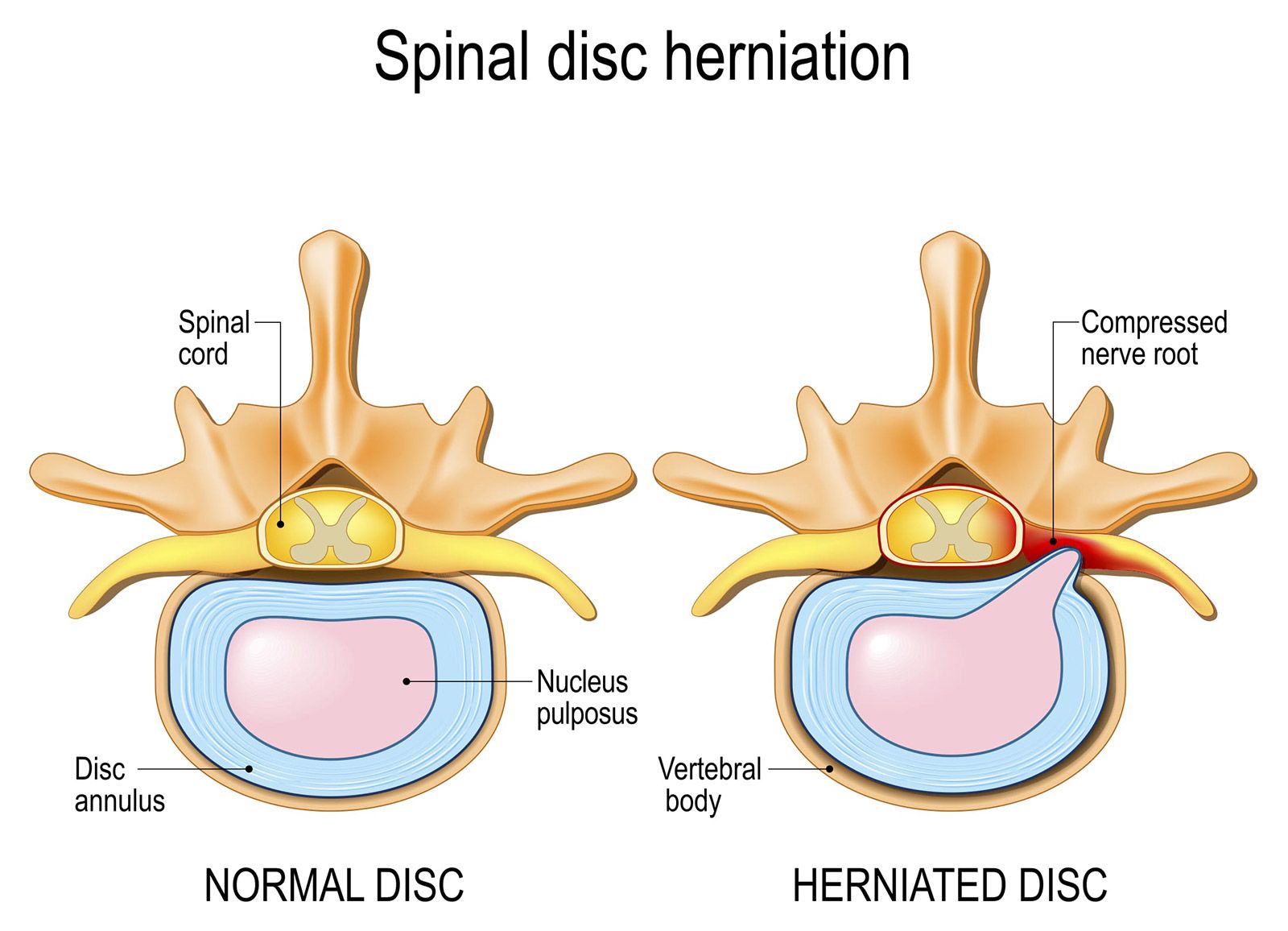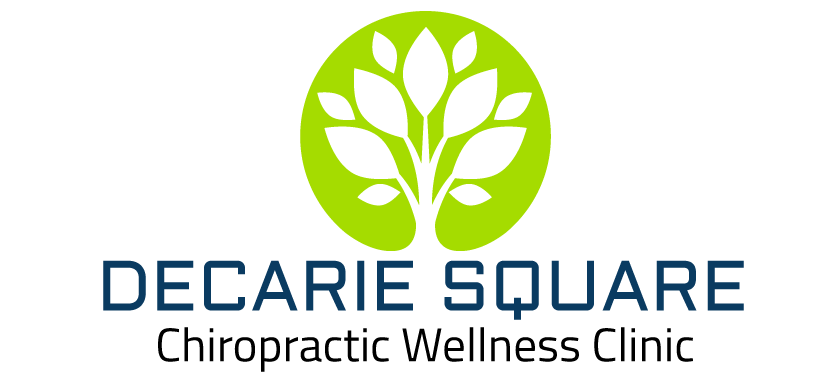herniated disc
The spine is made up of 33 vertebrae, and 23 intervertebral discs. These discs have multiple functions, from absorbing and distributing shock and impact to keeping your spine flexible and providing range of motion. Without them, the spine would not be able to function correctly.
A herniated disc refers to a situation where the outer portion of one of your vertebral discs has been torn. This allows the inner portion of the disc, or nucleus, to protrude through the fibrous exterior. Herniated discs are sometimes called ruptured discs or slipped discs. The herniated portion of the disc can end up compressing nerves that surround the disc.
Herniated discs can occur in any part of the spine. Herniated discs are more common in the lower back (lumbar spine) and neck (cervical spine), but also occur in the upper and mid-back (thoracic spine).
A lumbar or lower back disc herniation causes lower back pain, often extending into the hips, buttocks, or legs. Patients may also experience sciatica pain if the herniated disc affects the sciatic nerve, which runs from the lower back through the buttocks and thighs.
Cervical disc herniation occurs in the neck. As such, it usually causes neck pain, sometimes accompanied by symptoms in the shoulders, arms, or wrists.
Thoracic disc herniation occurs in the mid to upper back, an area known as the thoracic spine. While this form of disc herniation is possible, it is by far the least common type, affecting less than 4% of disc herniation patients.

CAUSES
Subluxations, or misalignments, to the spine.
Injuries (Traumatic injuries from accidents, falls, improper lifting, sports etc.)
Physically demanding jobs, involving repetitive and frequent heavy lifting, pulling, pushing, bending, and twisting.
Being overweight. Excess body weight causes extra stress on the disks in your lower back.
Lack of movement and inactivity (Sitting for long periods, puts three times the amount of pressure on the discs as standing).
Ageing (As we get older, the spinal discs start to wear down)
Poor posture.
Excessive physical strain.
Genetics. Some people inherit a predisposition to developing a herniated disk.
Smoking. It is thought that smoking lessens the oxygen supply to the disk, causing it to break down more quickly.

SYMPTOMS
Tingling, aching, or burning sensations in the affected area.
Difficulty controlling bowel movements or bladder function.
Tingling, burning, numbness, or aching sensations that radiate down the arms and legs.
Numbness, tingling, weakness in the shoulders and neck.
Often with neck motion the symptoms will either increase or decrease.
Pain that worsens at night or with certain movements.
Pain that worsens after standing or sitting.
Pain when walking short distances.
Unexplained muscle weakness.
Pain and numbness, most commonly on one side of the body.
CHIROPRACTIC CARE FOR A HERNIATED DISC
To determine the cause of your herniated disc, we begin with a thorough consultation, where Dr. Goel will look at your symptom’s overall health, focusing not only on your herniated disc, but also on your lifestyle, such as diet and amount of daily exercise. This integrated approach helps determine the best treatment for your herniated disc. To help identify the cause of your problem, Dr. Goel will discuss your symptoms and previous injuries, your family health history, and your lifestyle, including recreational and work-related physical activities.
After the consultation, Dr. Goel will conduct a full physical, orthopaedic, neurological and chiropractic examination of the spine. In some cases, she may recommend imaging tests, such as X-rays, CT scan or MRI to aid our diagnosis.
Once a diagnosis is achieved it will be used to develop an individualized treatment plan that will help ensure a fast recovery.
Our treatment approach may include spinal adjustments, adjustments to the joints of the body, muscle work, plus the prescription of rehabilitation exercises and stretches to improve posture.
With herniated disc, we will also look at the lifestyle factors that have led to the injury and help you make modifications as necessary to prevent future instances.
CLICK TO BOOK AN APPOINTMENT AT OUR CLINIC TODAY
At the Decarie Square Wellness Chiropractic Clinic, we believe the body works as one connected system. The spine, nervous system, muscles, and joints are all connected to each other, affecting the way our bodies maintain and restore their health. Dr. Goel combines a variety of treatments that reflect this holistic approach so that your body can be resilient in facing everyday challenges.
Chiropractic care is a safe, efficient, and effective way not only for eradicating the pain but also to address the underlying cause. Remember, an untreated, herniated disc can lead to permanent nerve damage in the future. If you are dealing with herniated disc, contact our friendly clinic to book an appointment, for an accurate diagnosis and treatment of your condition. You can contact us online or call 514.344.6118.
